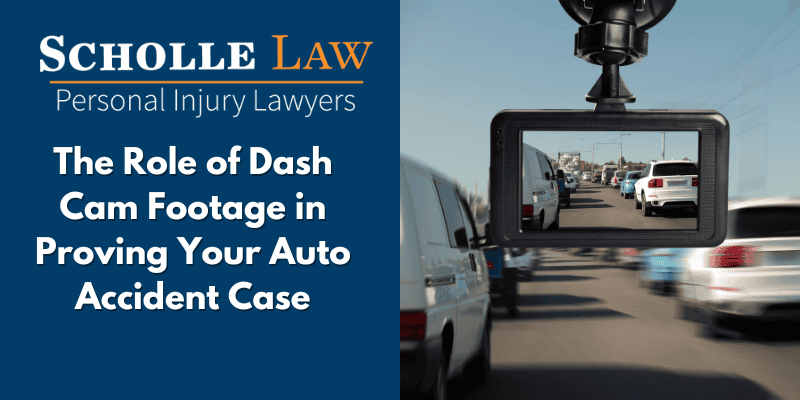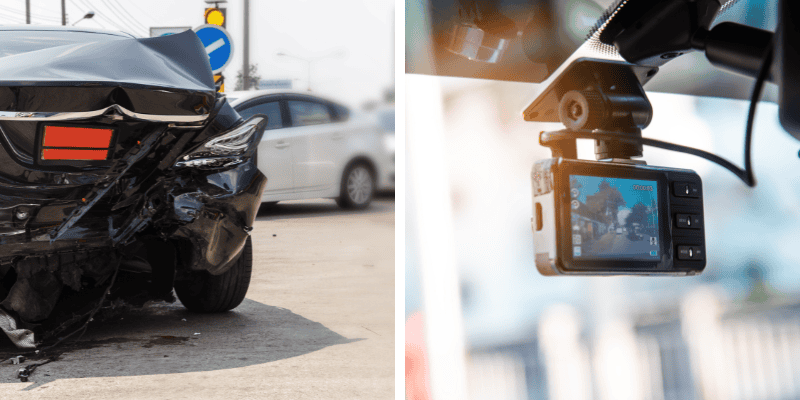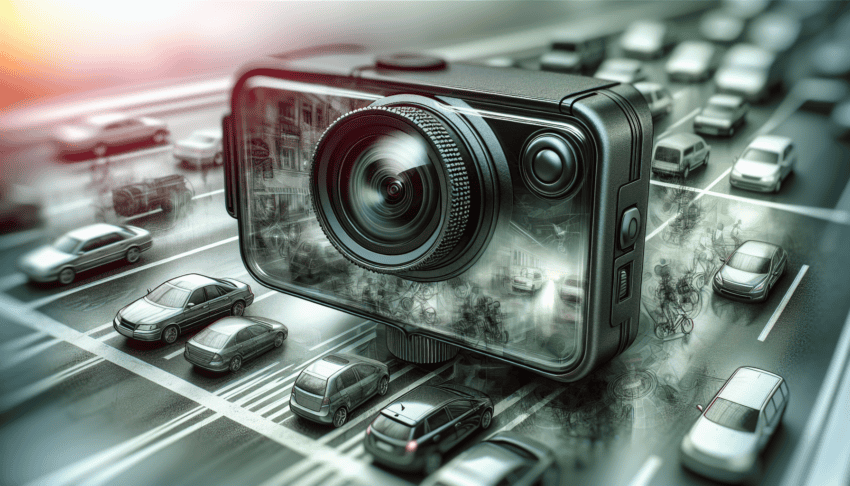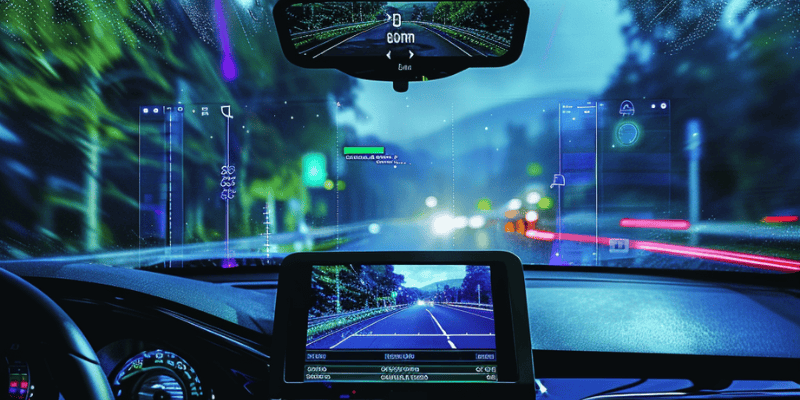4.9 Rating
Google REVIEWS
Leaders in Georgia Personal Injury Law Since 1995
The Role of Dash Cam Footage in Proving Your Auto Accident Case
In the critical moments after a car accident, your success in proving your case often hinges on one silent but unshakeable witness: your dash cam. The role of dash cam footage in proving your auto accident case is invaluable. This article will guide you through the evidentiary power of dash cam footage, the legal standards it must meet, and the impact it could have on your accident claim.

Key Takeaways
- Dash cams provide impartial documentation crucial in auto accident cases for proving fault, supporting legal arguments, corroborating witness statements, and reinforcing insurance claims.
- Dash cam footage must be authenticated to ensure it has not been tampered with, and its admissibility in court can be affected by privacy laws, recording laws, and the specific legal standards of each state.
- While important, dash cam footage is not infallible and should be used in conjunction with other evidence, such as police reports and witness testimonies, to strengthen a car accident case.

Harnessing Dash Cam Evidence in Car Accident Cases
Dash cams, once exclusively used by law enforcement, have now become increasingly popular among private drivers. This surge in popularity can be attributed to their ability to capture crucial footage in car accidents. As silent observers, they provide an unbiased record of events, making them a remarkable tool in legal proceedings.
From capturing traffic violations to recording driver behaviors, the dash cam footage offers a detailed account of the incident, crucial for determining fault in car accident cases. As a result, dash cams have emerged as valuable assets in the realm of personal injury law, offering the much-needed assistance to accident victims in their quest for justice.
In the context of car accident claims, dash cam footage emerges as a compelling piece of evidence, offering an impartial record of the events leading to the accident. Such visual documentation assists in resolving disputes, furnishing evidence of traffic violations and corroborating witness testimonies, thereby being an invaluable tool for any seasoned car accident attorney.
Ensuring the Admissibility of Dash Cam Video
The admissibility of dash cam footage in court is determined by its relevance and materiality to the case. The footage must serve to prove or disprove pivotal issues, and it is the court’s prerogative to decide its relevance. In the state of Georgia, dash cam footage is widely accepted as evidence, assuming it adheres to the state’s specific legal standards.
Despite dash cam footage offering a direct view of events, one must remember that it may not capture every needed detail or context for the accident. Therefore, it is not considered infallible. Authenticating dash cam footage is a critical step, requiring verification that it has not been altered or tampered with to be considered valid in court.
Dash cams that feature rear-facing video or record interior audio may face different standards of admissibility. The admissibility of dashcam footage hinges on the parties involved, the nature of the evidence captured, and the specific laws of the jurisdiction where the footage is to be presented.
Complementing Dash Cam Footage With Other Evidence
Dash cam footage, while invaluable, is just one piece of the puzzle in a car accident case. The key to presenting a robust case lies in integrating dash cam evidence with other forms of evidence, such as police reports, witness statements, and physical evidence from the accident scene.
A comprehensive approach to gathering evidence can paint a fuller picture of the events leading to the accident. In situations where there are conflicting accounts of the incident, an objective documentation of events from the dash cam, supported by witness statements and police reports, can help resolve disputes and establish the truth.
Hence, it’s imperative to consider dash cam footage as a component of a broader evidence collection framework, instead of viewing it as a standalone piece of evidence. This integration of evidence ensures that the narrative shown by the footage is supported and substantiated, making it a stronger piece of evidence in any car accident case.

The Impact of Dash Cams on Insurance Claims
Dash cams offer several benefits, including:
- Expediting insurance claims
- Assisting in fraud prevention
- Preventing a surge in your insurance premium
- Providing real-time footage of the road ahead, offering clear evidence of fault in an accident, which can be critical in insurance settlements.
Providing dash cam video evidence can:
- Prevent an increase in a driver’s insurance premium
- Support a driver’s argument against an inaccurate police report
- Strengthen a driver’s case for an insurance settlement.
Moreover, dash cams have proven invaluable in protecting drivers from false allegations. Clear, contradicting evidence against fraudulent claims has saved drivers from unjust financial burdens. Insurance companies, on their part, can obtain dash cam footage through a court order to review the accident, especially if they suspect falsehoods or errors in the driver’s claim.

Legal Nuances and Dash Cam Footage
With the growing popularity of dash cams, the legal landscape governing their use is continually evolving. Understanding the nuances of state-specific dash cam laws is crucial in ensuring the footage can be used as admissible evidence in a claim.
An experienced car accident attorney at Scholle Law can be instrumental in navigating the complexities of a car accident claim. They can help you with:
- Understanding the local laws
- Guiding you in collecting additional evidence beyond dash cam footage
- Assisting you in establishing significant accountability of the defendant.
One must bear in mind that although dash cam footage can furnish crucial evidence in car accident cases, it is not a panacea. The ultimate outcome of a case will often depend on a combination of factors, including the quality of the footage, its relevance to the case, and how well it is integrated with other forms of evidence.
Privacy Concerns and Recording Laws
Privacy and recording laws play a critical role in the admissibility of dash cam footage in court. For instance, in Georgia:
- The use of dash cam footage in an auto accident injury case does not require two-party consent.
- People are allowed to record conversations and other interactions as long as one party consents to the recording.
- This means that only one person involved in the conversation needs to give permission for it to be recorded.
While dash cams primarily record video, which can be used as evidence in court if it is relevant to the case, some dash cams also record audio. In such cases, the one-party consent rule would apply, meaning that at least one person involved in the conversation must be aware that recording is occurring.
Nonetheless, the utilization of such footage in court is subject to the judge’s discretion and must bear relevance to the case. It should also be obtained and used in compliance with all applicable laws regarding privacy and surveillance.
Dash Cam Installation: Legalities and Best Practices
Acquiring a dash cam is a task in itself, but installing it correctly is a whole different challenge. Proper dash cam installation is not just about ensuring the best view; it also involves legal compliance. In Georgia, for instance, the placement of dash cams in a motor vehicle is regulated under laws pertaining to obstructed views.
When installing a dash cam, it should be positioned in such a way that it does not obstruct the driver’s view of the road. A common recommendation is to mount the dash cam behind the rearview mirror where it can record the road ahead without impeding the driver’s vision.
Always ensure that the dash cam is installed correctly according to manufacturer instructions and positioned in a manner that complies with local laws to avoid any legal issues. Remember, the goal of a dash cam is to enhance your safety on the road, not compromise it.
Analyzing Dash Cam Footage: More Than Just Video
Dash cams have evolved significantly from their initial role as simple video recording devices mounted on a vehicle’s dashboard. Advanced dash cams now capture crucial additional information such as speed, time, and location, providing a comprehensive context for accident scenes. These high-end devices may also encompass interior recording, audio capture, night vision capability, motion detection, and cloud storage, significantly enhancing the breadth and depth of evidence collection.
Moreover, dash cams equipped with automatic incident recording functionality can save crucial footage surrounding an event, like sudden braking or impacts. This ensures that essential data is not lost and is retrievable for adjudication, making dash cams a powerful tool in any car accident case.


Real-Life Success Stories: Dash Cam Footage in Action
The true value of dash cams becomes evident in real-world scenarios where they have been pivotal in resolving cases. Dash cams have been crucial in hit-and-run incidents, capturing key evidence that helps in identifying fleeing drivers.
Consider the case of a BlackVue dash cam that recorded video and audio of a hit-and-run incident, which resulted in a car crash. This critical evidence was pivotal in tracking down the responsible driver and holding them accountable. After presenting the dash cam footage, the hit-and-run driver’s insurance acknowledged full responsibility, resulting in fair compensation for the victim.
In situations where there is a dispute over who is at fault, dash cam footage serves as unbiased evidence. For instance, it can capture a driver running a red light and causing a collision. This objective account of the incident can be invaluable in resolving such disputes.
Summary
As we navigate the roads of the 21st century, dash cams have emerged as not just gadgets but as essential tools for driver safety and legal protection. From providing unbiased accounts of incidents, aiding in insurance claims, to helping identify hit-and-run drivers, dash cams have proven their worth. However, as with any tool, the effectiveness of dash cams hinges on proper use and understanding of the legalities surrounding its use. So, before you hit the road with your dash cam, make sure you are well-versed in these aspects. Drive safe!
Frequently Asked Questions
Is dash cam footage admissible in Georgia court?
Yes, dash cam footage is admissible in court in the state of Georgia, provided it meets certain criteria. Here are the key factors to consider for ensuring the admissibility of dash cam footage:
- Relevance: The footage must be relevant to the case. It should provide information that can help establish the facts related to the accident or incident being contested in court.
- Authenticity: The footage must be authenticated. This means that the person presenting the footage must be able to verify that the video is a true and accurate representation of the events it depicts. This can be done by the owner of the dash cam or someone who has direct knowledge of how the footage was recorded.
- Chain of Custody: It is important to maintain a clear chain of custody for the footage. This ensures that the footage has not been tampered with or altered in any way. Properly handling and storing the footage from the time of recording to its presentation in court is crucial.
- Clear and Unaltered: The footage should be clear and unaltered. Any evidence of tampering or editing can render the footage inadmissible. It should show the entire incident without any suspicious cuts or modifications.
- Legal Recording: Since Georgia is a one-party consent state for audio recording, as long as you (the driver) consent to the recording, the audio portion of the footage is also admissible. Ensure that the recording complies with all relevant privacy and consent laws.
- Proper Presentation: When presenting dash cam footage in court, it is advisable to provide a detailed log or description of the footage, highlighting key moments and timestamps that are relevant to the case. This helps the judge and jury understand the context and significance of the footage.
If these criteria are met, dash cam footage can serve as powerful evidence in legal proceedings, helping to establish facts and clarify the circumstances surrounding an incident. It is always a good practice to consult with a legal professional to ensure that the footage is properly prepared and presented in court.
Can dash cam footage prevent an insurance premium increase?
Yes, dash cam footage can prevent an insurance premium increase by providing evidence of your lack of liability in an accident.
Can a dash cam help in a hit-and-run case?
Absolutely, dash cams can provide crucial evidence for identifying hit-and-run drivers.
Do all dash cams record audio?
No, not all dash cams record audio, but some advanced models do have this feature.
Is it legal to install a dash cam in my car in Georgia?
Yes, it is legal to install a dash cam in your car in Georgia. However, there are specific rules and considerations regarding where you can install it to ensure it does not obstruct your view or violate any state regulations.
